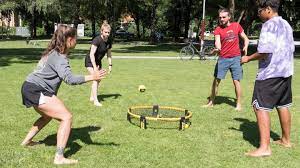

Benefits of getting outside and physical activity
- It builds confidence. The way that teenagers play in nature has a lot less structure than most types of indoor play. There are infinite ways to interact with outdoor environments.
- It promotes creativity and imagination. This unstructured style of play also allows teens to interact meaningfully with their surroundings. They can think more freely, design their own activities, and approach the world in inventive ways.
- It teaches responsibility. Living things die if mistreated or not taken care of properly, and entrusting a teenagers to take care of the living parts of their environment means they’ll learn what happens when they forget to water a plant, or pull a flower out by its roots.
- It provides different stimulation. Nature may seem less stimulating than video games, but in reality, it activates more senses—you can see, hear, smell, and touch outdoor environments. “As the young spend less and less of their lives in natural surroundings, their senses narrow,” Louv warns, “and this reduces the richness of human experience.”
- It gets kids moving. Most ways of interacting with nature involve more exercise than sitting on the couch. You don’t have to be joining the local soccer team or riding a bike through the park—even a walk will get the blood pumping. Not only is exercise good for our bodies, but it seems to make us more focused.
- It makes them think. Louv says that nature creates a unique sense of wonder for kids/teenagers that no other environment can provide. The phenomena that occur naturally in backyards and parks everyday make kids ask questions about the earth and the life that it supports.
- It reduces stress and fatigue. According to the Attention Restoration Theory, urban environments require what’s called directed attention, which forces us to ignore distractions and exhausts our brains. In natural environments, we practice an effortless type of attention known as soft fascination that creates feelings of pleasure, not fatigue.
So while screen time is the easier, more popular choice, it’s important to set aside time for outdoor play. For fun, stimulating activities you and your kids can do in nature, see Ideas for Getting Your Kids into Nature.
Further Resources:
https://time.com/3726098/learning-through-play-teenagers-education/
https://yourteenmag.com/health/teenager-mental-health/benefits-of-going-outdoors
https://childmind.org/article/why-kids-need-to-spend-time-in-nature/

Videos
Exploring the importance of physical activity for brain health
What is Nature Deficit Disorder?
The Brain-Changing Benefits of Exercise
